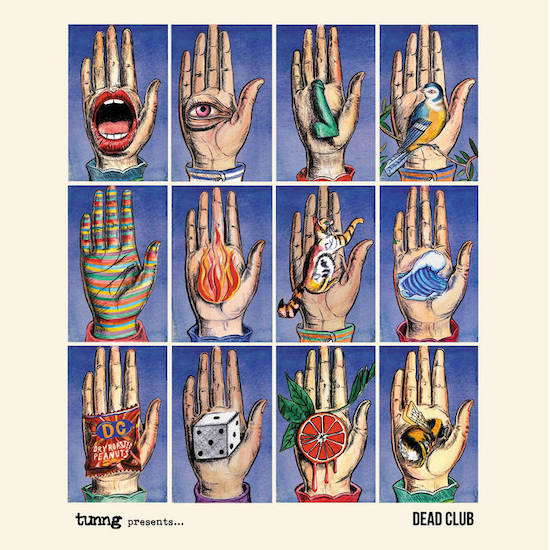When Tunng set out on a project that would start a conversation on death and dying, they could not have anticipated the environment they would release it into. Their seventh album, Presents…Dead Club, has arrived in a year threaded through with grief, making it either the best possible listening or the worst, depending on your stamina.
The project began in 2018 in a series of interviews with authors, musicians, philosophers, a palliative care physician, and a forensic anthropologist that informed the theme of Dead Club. Clips from these interviews are cut into the songs, making it impossible to escape from the fact that this album is about pondering death, sometimes in a spiritual sense and sometimes in practical terms of end of life preparations or what happens to the body. The full interviews are available as a companion podcast of the same name and make for compelling listening in their own right.
But if any band were to make a somewhat academic study of death in an album, Tunng feels like the right band. The generally gentle nature of their music stops them becoming too heavy or maudlin. There’s always the odd lyric in every song that rings as blunt or comedic, and the song about Swedish death cleaning teeters on the balance of aching nostalgia and the absurd.
“This is a bodily thing,” author Max Porter reminded us when interviewed for the podcast. The lyrics he wrote and recited for ‘Man’ and ‘Woman’ ground listeners in these details: the body’s features and failures, and its decay after death. His line “someone might read your body like a book” confuses the sensuous and the corporeal, summarising the ineffable feelings of a body or a spirit with a solemn declaration.
Though solemnity is not a defining characteristic of Dead Club, it feels right that the songs’ arrangements are more muted than much of Tunng’s earlier work, leaning more towards folk than electronica, with songs led by acoustic guitars or piano. Electronics instead are like a coarse fabric, providing a simultaneously soft but rough textural background. Still, there isn’t a complete departure from their style. ‘Death is the New Sex,’ with its buzzy electronic beat, closely resembles the folktronica the band was once built around, and the skipping melody of ‘Three Birds’ resembles other buoyant vocal arrangements from their back catalogue as much as it does nursery rhymes about the plague.
Where Dead Club is most successful is in its balance of emotion and pragmatism, making space for the fascination death holds while still allowing that there is a real fear for many around it. In this way, ‘Scared to Death’ is the emotional core of this album. With its bleeping synth rhythm and gentle piano arrangement, it feels intimate while its lyrics touch on what people fear and what they dare to hope for when they allow themselves to think about the end.
This year has shown us that people don’t really know how — or at least don’t currently have the capacity — to grieve. No one album or podcast series is going to change that. But what Tunng have shown with Presents…Dead Club is that addressing grief and death doesn’t have to be devastating. It can be thought-provoking. It can also be simply pleasurable.


